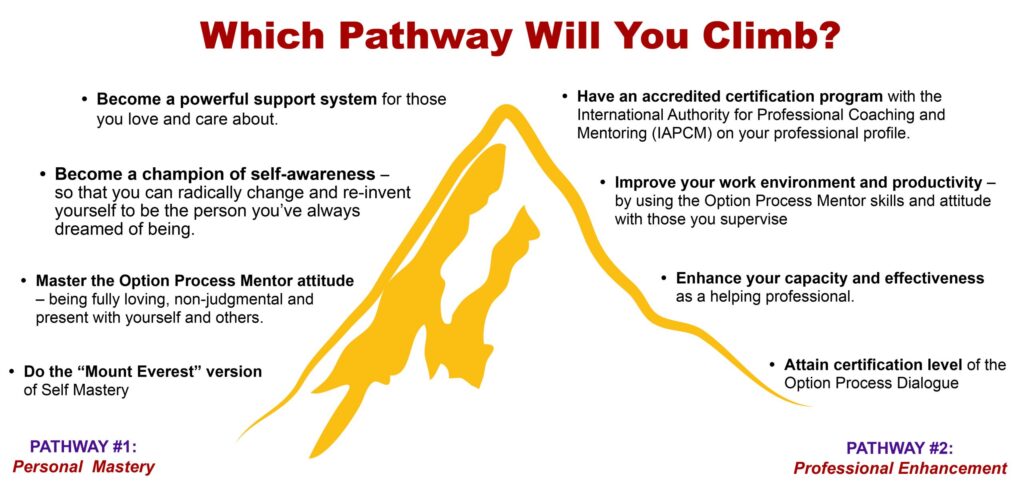To become a certified mentor in Texas, there are specific steps and requirements that you need to fulfill. This article provides a concise yet informative overview of the process, guiding you through the necessary qualifications, training, and evaluation needed to become a certified mentor in the state of Texas. Whether you are passionate about sharing knowledge, empowering others, or seeking professional growth opportunities, this article will equip you with the essential information to embark on your journey towards becoming a certified mentor in Texas.

This image is property of tea.texas.gov.
Requirements for Becoming a Certified Mentor
Education Requirements
To become a certified mentor in Texas, you must first meet certain education requirements. Generally, a high school diploma or equivalent is required. In some cases, a higher level of education, such as an associate’s or bachelor’s degree, may be preferred. However, specific education requirements can vary depending on the certification program you choose.
Experience Requirements
In addition to education, experience is also an important requirement for becoming a certified mentor. Most certification programs require a minimum amount of experience working in a mentoring or related field. This could include experience in teaching, counseling, or working with youth or adults in a mentoring capacity.
Background Check
To ensure the safety and well-being of mentees, a background check is typically required as part of the certification process. This includes a criminal history check and may also involve other screenings such as reference checks or interviews. Clearing the background check is a crucial step towards becoming a certified mentor in Texas.
Choosing a Certification Program
Researching Certification Programs
When considering becoming a certified mentor, it is important to research and evaluate different certification programs. Look for programs that align with your goals and values as a mentor. Consider factors such as program content, reputation, and the specific population or age group the program focuses on. It is also helpful to read reviews or speak with current or former mentors who have completed the program.
Comparing Program Requirements
Each certification program may have its own set of requirements that you must meet in order to become certified. Compare and contrast the educational and experiential requirements of different programs to find the one that best fits your background and career goals. It is important to ensure that the program you choose aligns with your current qualifications and allows for further professional growth.
Evaluating Program Prestige
While there may be numerous certification programs available, not all carry the same level of prestige or recognition. Research the reputation and standing of the certification program within the mentoring community. Consider factors such as program accreditation, affiliations with professional organizations, and whether the program is recognized by other mentoring institutions or agencies. Choosing a well-regarded program can enhance your professional credibility as a certified mentor.

This image is property of www.tasb.org.
Application Process
Gathering Required Documents
Before submitting your application for certification, gather all the necessary documents. These documents typically include proof of education, transcripts, certifications, and evidence of the requisite experience. If needed, request official copies of your academic records and other supporting documents in a timely manner to ensure a smooth application process.
Filling Out the Application
When filling out the application, ensure that you provide accurate and detailed information. Double-check all your entries to avoid any mistakes or omissions. Pay careful attention to sections that require information about your education, experience, and references. Some applications may also include additional sections for personal statements or essays, where you can highlight your motivation and commitment to becoming a certified mentor.
Submitting the Application
Once you have completed the application, review it one final time to make sure all required information is filled out correctly. Submit the application along with any required application fees by the designated deadline. Some certification programs may have specific submission procedures, such as online submission or mailing a hard copy. Following the instructions and submitting the application on time is crucial to ensure it is considered for review.
Certification Examination
Exam Content
As part of the certification process, you will likely be required to pass an examination. The exam content will vary depending on the certification program, but it generally covers the knowledge and skills needed to be an effective mentor. Topics covered may include mentoring techniques, communication skills, ethical considerations, and cultural competence. Familiarize yourself with the exam content and review relevant study materials to prepare effectively.
Preparing for the Exam
To successfully pass the certification examination, it is important to prepare thoroughly. Begin by reviewing the program materials and study guides provided by the certification program. Consider enrolling in preparatory courses or workshops that can provide additional guidance and practice opportunities. Create a study schedule and allocate sufficient time to cover all exam content. Review practice questions and take mock exams to assess your progress and identify areas that require further focus.
Taking the Exam
On the day of the exam, arrive early to the designated testing location. Bring any required identification or authorization letters as specified by the certification program. Familiarize yourself with the exam format and instructions before beginning. Stay focused and manage your time effectively to ensure you have enough time to answer all questions. After completing the exam, follow any specific procedures for submitting your answers and await your results.

This image is property of www.raiseyourhandtexas.org.
Mentor Training
Training Requirements
To become a certified mentor, you will likely be required to complete a mentor training program. This training is designed to equip you with the necessary skills and knowledge to effectively mentor others. The training requirements can vary depending on the certification program, but they typically involve completing a certain number of training hours and modules. Some programs may also require you to attend workshops or seminars as part of the training process.
Training Program Options
When choosing a mentor training program, consider the options available and select one that aligns with your learning preferences and schedule. Some training programs may be offered in a traditional classroom setting, while others may be available online or as a combination of both. Additionally, consider factors such as the reputation of the training program, the qualifications of the trainers, and the flexibility of the training schedule. Choose a program that will provide you with the best foundation for your mentoring career.
Completing the Training
Once you have selected a mentor training program, focus on completing the training requirements in a diligent and timely manner. Attend all scheduled training sessions, actively participate in workshops or discussions, and complete any assigned readings or coursework. Take advantage of opportunities to practice your mentoring skills and seek feedback from trainers or peers. By fully engaging in the training process, you will develop the necessary competencies to excel as a certified mentor.
Supervised Experience
Required Mentoring Hours
After completing mentor training, most certification programs require a certain number of supervised mentoring hours. These hours are intended to provide you with practical experience and guidance as you apply the knowledge and skills gained during training. The specific number of required hours can vary depending on the program and the population you intend to mentor. Ensure that you understand the mentoring hour requirements and plan accordingly to meet them within the designated timeframe.
Finding a Mentoring Site
To fulfill the supervised mentoring experience requirement, you will need to find a suitable mentoring site. This could be a school, community organization, or any setting where mentorship opportunities are available. Reach out to local schools or mentoring programs to inquire about opportunities to mentor. Network with professionals in your field of interest to identify potential mentorship sites. Ensure that the mentoring site aligns with the specific requirements of your certification program.
Completing Supervised Experience
Once you have secured a mentoring site, work closely with your supervisor to structure your mentoring sessions and establish goals. Regularly communicate with your supervisor to ensure that you are meeting the required mentoring hours and receiving the necessary guidance and support. Reflect on each mentoring session, document your experiences, and seek feedback from your supervisor to continuously improve your mentoring skills. Only by successfully completing the required supervised experience can you move closer to becoming a certified mentor.

This image is property of option.org.
Background Check and Fingerprints
Completing Background Check
To ensure the safety and well-being of mentees, completing a background check is a standard requirement for becoming a certified mentor. Follow the instructions provided by your certification program to initiate and complete the background check process. This typically involves submitting personal information and consent forms to the appropriate authorities or agencies. Be prepared to provide any required documentation or identification, as well as pay any associated fees.
Getting Fingerprinted
In addition to a background check, some certification programs may require you to be fingerprinted. Fingerprinting is a more thorough method of identification, helping to verify your identity and ensure that you have no disqualifying criminal records. Your certification program will provide instructions on where and how to get fingerprinted. Follow these instructions carefully, and be sure to bring any required documents or identification. Fingerprinting is an important step in the certification process, as it helps establish your trustworthiness as a mentor.
Maintaining Certification
Continuing Education
To maintain your certification as a mentor, ongoing professional development is essential. Most certification programs require mentors to engage in continuing education activities. These activities can include attending workshops, seminars, or conferences related to mentoring. Additionally, reading professional journals, participating in online courses, or joining mentoring-related organizations can contribute to your professional growth. Stay up-to-date with the latest research and best practices in mentoring to continuously enhance your skills as a certified mentor.
Renewing Certification
Certification as a mentor is not a one-time achievement. It requires periodic renewal to ensure that mentors remain competent and up-to-date in their practice. Certification renewal requirements can vary depending on the program, but often involve submitting documentation of continuing education activities and paying renewal fees. Stay informed about your certification program’s renewal process and deadlines to avoid any lapses in certification status. Regular renewal is important to demonstrate your commitment to maintaining professional standards as a certified mentor.

This image is property of option.org.
Benefits of Becoming a Certified Mentor
Enhanced Professionalism
Becoming a certified mentor demonstrates your commitment to professionalism. By completing the necessary requirements, training, and examinations, you are displaying your dedication to the mentoring field and the well-being of those you mentor. Certification adds credibility to your credentials and can enhance your professional reputation among peers, employers, and mentees.
Career Advancement Opportunities
Becoming a certified mentor can open doors to various career advancement opportunities. Certification validates your expertise and can make you a more competitive candidate when applying for mentorship positions or promotions in your field. It can also expand your professional network, connecting you with other mentors, organizations, and potential employers who value certification and are seeking qualified mentors.
Networking and Support
Certification as a mentor provides access to a network of professionals in the mentoring community. This network can offer opportunities for collaboration, mentorship, and support. Joining mentoring-related organizations or attending industry conferences and events can help you build connections with like-minded professionals. Engaging with this network of certified mentors allows you to share experiences, seek advice, and stay updated on the latest trends and research in mentoring.
Challenges and Rewards of Being a Mentor
Dealing with Challenging Situations
Being a mentor comes with its fair share of challenges. Mentees may face various personal or academic difficulties, and it is the mentor’s role to provide guidance and support. This can sometimes be emotionally draining and require patience, empathy, and the ability to navigate complex situations. However, overcoming these challenges can lead to personal growth and a sense of fulfillment, knowing that you have made a positive impact on someone’s life.
Seeing the Positive Impact
One of the most rewarding aspects of being a mentor is witnessing the positive impact you can have on mentees. Watching them grow, succeed, and achieve their goals can be immensely gratifying. By offering guidance, support, and encouragement, mentors can empower mentees to reach their full potential and become the best version of themselves. This fulfillment and seeing the transformation in mentees’ lives make the challenges of mentoring all the more worthwhile.
Personal Growth and Satisfaction
Being a mentor also offers opportunities for personal growth and self-reflection. Mentoring allows you to develop valuable skills such as active listening, empathy, and effective communication. Through the mentoring process, mentors often gain a deeper understanding of themselves and their own values. Mentoring can be a transformative experience that enriches your own life and provides a sense of purpose and satisfaction in contributing to the growth and development of others.
In conclusion, becoming a certified mentor in Texas requires fulfilling specific requirements, choosing the right certification program, completing the application process, passing the certification examination, undergoing mentor training, gaining supervised experience, completing a background check and fingerprints, and maintaining certification through professional development. While challenges may arise in the mentorship journey, the rewards of enhanced professionalism, career advancement opportunities, networking, and personal growth make the pursuit of becoming a certified mentor in Texas a fulfilling and worthwhile endeavor.
